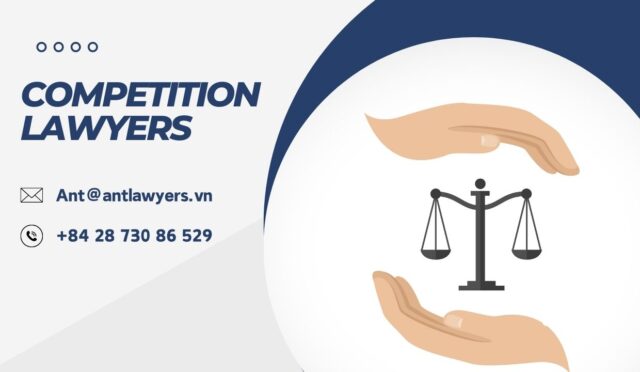As competition lawyers doing our works, we are normally looking into the legal regulations concerning unfair competition and compliance with competition laws in mergers and acquisitions (M&A) transactions.
The Vietnam Competition Law outlines various categories of actions that violate competition laws. Entities or individuals breaching these laws may face corrective measures imposed by competent state authorities, including control over purchase prices and sales prices of goods and services in contracts of businesses formed after economic concentration.
The law also sets thresholds requiring businesses to notify authorities about economic concentrations to prevent potential monopolistic or dominant positions resulting from M&A transactions.
The current legislation reflects a shift in both legal thinking and economic approach, emphasizing a closer integration of legal and economic perspectives.

Actions Violating Competition Laws
Violations of Anti-Competitive Agreements
Anti-competitive agreements involve coordinated actions among businesses to reduce or eliminate competitive pressure or limit independent actions among competitors. Vietnamese law does not provide a precise definition but lists behaviors considered as anti-competitive agreements in the Competition Law. The consequences of such agreements include reduced competitive pressure and market distortion or obstruction.
Violations of Dominant Market Position and Monopoly
A business holds a dominant market position if it has a market share of 30% or more or can significantly restrict competition. The Competition Law prohibits actions such as selling goods or services below total cost to eliminate competitors, imposing unreasonable purchase or sale prices, limiting production, or setting minimum resale prices that harm customers.
Violations of Economic Concentration
Economic concentration violations occur when mergers or acquisitions significantly restrict competition in the Vietnamese market. These transactions are subject to regulatory oversight to prevent the formation of monopolies or dominant market positions that could harm the competitive landscape.
Violations of Unfair Competition
Unfair competition actions by businesses contravene principles of goodwill, honesty, commercial practices, and other business standards, potentially harming the legitimate rights and interests of other businesses. Specific prohibited actions include:
1. Infringement of business secrets.
2. Coercion of customers or business partners.
3. Providing false information about other businesses.
4. Disrupting business operations of other businesses.
5. Unfairly attracting customers.
6. Selling goods or services below total cost to eliminate competitors.
Compliance with Competition Laws in M&A Transactions
While M&A activities are increasing in Vietnam, concurrent policies for controlling economic concentration need to be harmonized, facilitating business operations while ensuring compliance with economic concentration laws. The surge in M&A transactions is a positive market signal, but it also necessitates enhanced control of economic concentration by regulatory authorities.
Vietnamese competition laws set thresholds requiring businesses to notify authorities about economic concentrations, including total assets, total revenue, transaction value, and combined market share of the participating businesses.
The Role of Competition Lawyers in M&A Transactions
Competition lawyers play a crucial role in ensuring that M&A transactions comply with competition laws. Their expertise helps businesses navigate complex legal frameworks, assess potential risks, and implement strategies to avoid legal pitfalls. By engaging competition lawyers early in the M&A process, companies can ensure thorough compliance with legal requirements and prevent costly regulatory issues down the line.
Key Responsibilities of Competition Lawyers
1. Legal Risk Assessment: Competition lawyers assess the potential legal risks associated with M&A transactions through due diligence research. They analyze market conditions, evaluate the competitive landscape, and identify any potential violations of competition laws.
2. Regulatory Compliance: Ensuring compliance with competition laws is a primary responsibility of competition lawyers. They guide businesses through the regulatory requirements, including the notification process for economic concentrations, and help prepare the necessary documentation.
3. Negotiation and Structuring: Competition lawyers assist in structuring M&A deals to minimize legal risks. They negotiate terms and conditions that align with competition laws, ensuring that the transaction does not create monopolistic or dominant positions.
4. Dispute Resolution: In cases of legal disputes arising from M&A transactions, competition lawyers represent businesses in court litigation or before regulatory bodies. Their expertise in competition law is essential for resolving conflicts and protecting the interests of their clients.
Penalties and Compliance Measures
The maximum fine for violations of unfair competition regulations is 2 billion VND. Specific penalties for competition law violations includes administrative penalties such as warnings or fines, primarily ranging from VND 200 million to VND 1 billion, depending on the violation’s nature and severity.
Supplementary penalties may include:
– Revocation of business registration certificates or equivalent documents.
– Suspension of licenses and professional practice certificates.
– Confiscation of materials and means used for competition law violations.
– Confiscation of illicit profits gained from the violations.
In addition to fines, violators may be required to implement corrective measures such as restructuring businesses abusing their dominant market position, removing illegal clauses from contracts, and public retraction of false information.
Criminal Liability for Competition Law Violations
The Penal Code outlines criminal liability for competition law violations which individuals causing damage or illicitly gaining certain profit amount may face criminal charges. Violations include agreements to prevent market entry, eliminate non-agreeing businesses, or limit competition when combined market shares exceed 30%. Further, penalties for such violations could also extend to non-custodial reform for up to 2 years, or imprisonment from 3 months to 2 years. Severe violations, such as recurrent offenses, sophisticated methods, or significant harm to the market, may result in fines or imprisonment from 1-5 years, along with additional monetary fines and professional prohibitions.
Understanding and adhering to competition laws is crucial for businesses involved in M&A transactions to avoid severe penalties and ensure fair competition in the market. The Competition Law of 2018 provides a comprehensive framework for regulating anti-competitive practices and promoting a healthy competitive environment. Businesses should actively engage with competition lawyers to navigate these regulations and maintain compliance in their M&A activities.
The role of competition lawyers is pivotal in guiding businesses through the complexities of competition laws, ensuring legal compliance, and fostering an equitable market landscape. With the increasing trend of M&A transactions, the expertise of competition lawyers becomes ever more essential in safeguarding the integrity of market competition.
By leveraging the knowledge and skills of competition lawyers, businesses can effectively manage their legal risks and capitalize on opportunities within the competitive marketplace. Competition lawyers not only help mitigate legal challenges but also contribute to the overall economic health and sustainability of the business environment.
In conclusion, competition lawyers are indispensable in the realm of M&A transactions. Their guidance ensures that businesses adhere to competition laws, avoid legal pitfalls, and maintain fair competition. As M&A activities continue to rise, the importance of competition lawyers in protecting market integrity and promoting economic fairness cannot be overstated.
About ANT Lawyers, a law firm in Vietnam
We help clients overcome cultural barriers and achieve their strategic and financial outcomes, while ensuring the best interest rate protection, risk mitigation and regulatory compliance. ANT lawyers has lawyers in Ho Chi Minh city, Hanoi, and Danang, and will help customers in doing business in Vietnam.




Không có nhận xét nào:
Đăng nhận xét